MercoPress. South Atlantic News Agency
Latin America
-
Tuesday, November 29th 2022 - 10:01 UTC
Chile targets Brazil to promote and expand exports
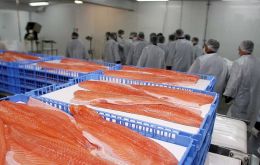
Chile is renewing its strategy to increase and diversify exports to the largest economy and market in South America. Spearheaded by ProChile, an arm of the country’s Ministry of Foreign Affairs, the plan is to expand its network in Brazil with new offices in Brasília and Belo Horizonte.
-
Tuesday, November 29th 2022 - 09:55 UTC
Peru's President lands in Chile for bilateral talks

Peru's President Pedro Castillo Terrones and his entourage landed in Santiago on an official tour during which he is to participate in the IV Peru-Chile Binational Cabinet, among other engagements.
-
Monday, November 28th 2022 - 10:30 UTC
With no reelection possible, Mexican president begins preparing his party to continue ruling
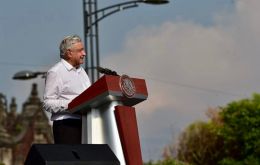
The debate on amendments to the electoral legislation and electoral authority in Mexico, sponsored by president Andrés Manuel Lopez Obrador and strongly criticized by the opposition has led to an unprecedented dispute on the streets of Mexico City.
-
Monday, November 28th 2022 - 09:57 UTC
Peru's Judiciary Chief fails to hold appeasement meeting between President, Congress

Peru's Chief Justice Elvia Barrios Saturday urged President Pedro Castillo Terrones and Congress Speaker José Williams to promote dialogue between the two branches of government and put an end to the political crisis that the country is going through.
-
Saturday, November 26th 2022 - 21:31 UTC
Poverty in Latin America affects 32% of the total population; 28% don't study or have paid jobs, ECLAC report
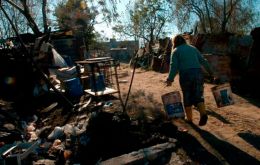
In Latin America and the Caribbean some 200 million people live in poverty, with 82 million in extreme poverty, points out a report from the UN Economic Commission for the region, ECLAC. The numbers are equivalent to 32,1% and 13,1% of the total population and need to be urgently addressed to avert the risk of a lost generation.
-
Saturday, November 26th 2022 - 10:51 UTC
Colombia: Mexico agrees to join as guarantor of peace talks with ELN
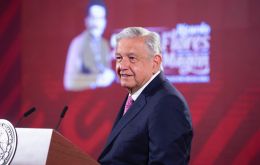
President Andrés Manuel López Obrador (AMLO) Friday told his Colombian colleague Gustavo Petro that Mexico had accepted the invitation to join as guarantor of the peace talks between the South American country's administration and the National Liberation Army (ELN) guerrillas.
-
Saturday, November 26th 2022 - 10:41 UTC
Women take to the streets in a new November 25 against sexual and gender-based violence
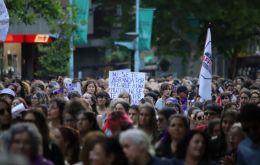
Dozens of cities in Latin America and around the world were the scene where thousands of women marched on a new International Day for the Elimination of Violence against Women, better known as 25N.
-
Saturday, November 26th 2022 - 09:59 UTC
Castillo appoints new Peruvian Prime Minister
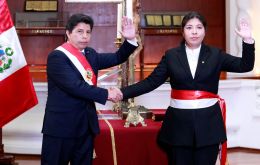
Culture Minister Betssy Chávez Chino was chosen by Peru's President Pedro Castillo Terrones to become the country's new Prime Minister (President of the Council of Ministers) following Aíbal Torres' resignation Thursday after Congress “refused” to approve a motion of confidence.
-
Saturday, November 26th 2022 - 09:51 UTC
Guarantors of Colombia-ELN peace talks ratified

Negotiators in the Colombian peace process involving the government of President Gustavo Petro and remnants of the National Liberation Army (ELN) guerrillas Friday agreed in Caracas to ratify Cuba, Norway, and Venezuela as guarantor countries in the talks.
-
Friday, November 25th 2022 - 08:43 UTC
Mexican fans pull Falklands card to mock Argentina supporters in Qatar

Argentine and Mexican fans did not get along very well in Qatar, particularly after provocative chants underlining that ”in the Malvinas (Falklands) they speak English.”
